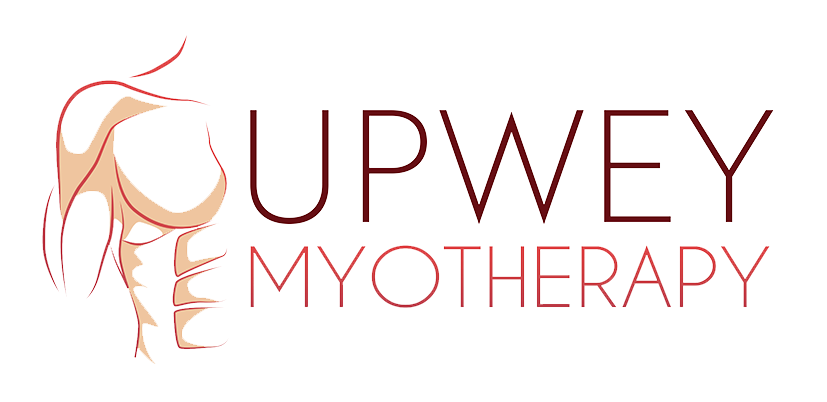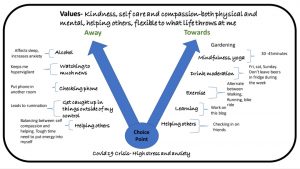ACT- Acceptance and Commitment Therapy
By Mat Richardson
My Journey with ACT started 10 years ago when I was suffering with chronic pain (A link to a blog on my pain and depression), I was lost and couldn’t see a way out. I used a similar framework to ACT to get me out of trouble and didn’t even know this is what I was doing. My shoulder pain had been present for over a year and I went down the traditional biomedical pathway of diagnosis, treatment & resolution of pain. If you can’t enter this pathway, or you do and don’t get resolution, what then? For me I spiraled into depression and pain and was becoming fused to my undesired self. Adopting experiential avoidance as a coping strategy, I started participating and engaging in less activities. I was losing flexibility in life, had no clarity on my values or who I was and all I could see was the sick and undesired self. At this time, I was very fused to my thoughts and feelings, my mental health and pain spiraled downward.
Then the turning point: one day I woke up and thought if I died at that moment, I wouldn’t have cared. I picked up the phone and called my doctor to get help for my depression, she put me on antidepressants and at this time one of my patients introduced me to mindfulness. Both ingredients were key for me getting out of my hole. Mindfulness taught me self-compassion, that thoughts were not fact and that I could create space and not automatically respond. I became less reactive and more reflective, I was able to sit with sensations and feelings without reacting and bring a curious mind to them and stopped the struggle with them. If someone had used the word acceptance back then I might have punched them, but using a willingness to let pain be and focus on what you value, was more acceptable to me. I looked at my life and started clarifying what I valued, what made Mat, Mat. Gradually I started to see who I really was and started to get flexibility in life. Over a few months the pain went away, and my mental health improved. Without realizing it I had done an ACT intervention on my self, but I didn’t know what ACT was until many years later.
ACT aims to increase Psychological Flexibility, “to maximise human potential for a rich and meaningful life, while effectively handling the pain the inevitabley goes with it” (Harris, 2019). Psychological flexibility has 6 core processes with 4 of them directly from Mindfulness.
- Contact with the present moment
- Self As Context
- Defusion
- Acceptance
- Committed Action
- Values
The first part of my story I was doing the opposite of ACT, I was becoming psychologically inflexible. I was caught in a trap of trying to get rid of pain and couldn’t live life until it was gone: trying to find the silver bullet and my life was on hold (Bunzil B. W., 2013). I had become psychologically inflexible- not connecting with the present moment, remoteness from values, unworkable action, fusion with undesired self and experiential avoidance (Harris, 2019).
A little exercise if you are a Practitioner: what components of psychological inflexibility may relate to the Yellow flags, that predict a patient with a poor outcome and may lead to pain related disability?
2 years ago when I attended a workshop run by Alison Sim and Dr Bronnie Lennox Thompson exploring how ACT can be used to help people with persistent pain and I realized this is essentially what I did many years before. The processes involved with ACT tickled my biases, as I had already been practicing Mindfulness for many years. ACT is a third wave Psychological therapy that was developed mid 80’s by Steven Hayes. Now I am not saying for manual therapists to become Psychologists, but what I am saying is there are trains of thought, processes and techniques we could use in the clinic that could be very helpful when working with people in chronic pain. We are not digging into trauma or diagnosing psychological conditions as this is outside of a lot of our scope of practice. I believe we need to know about these different approaches so we can work with counsellors or Psychologist to give the patient consistent messages, hence having a wide referral network is invaluable.
The best person to practice ACT on, is yourself, so during the second wave of Covid 19 and stage four lockdown, I drew up a choice point, I could see all the triggers for my stress and anxiety were present: I couldn’t work, money getting tight, home schooling kids and uncertainty with what will happen next. On the bottom I placed the situation: stage 4 lockdown where I was unable to work, high stress and anxiety. I then drew 2 arrows one towards the person I want to be and one away from the person I wanted to be, guided by my values. I did some work with values clarifications and wrote them on the top. Functional contextualism is a key idea that flows through ACT, where a behavior is neither good or bad. Rather, “what effect does this behavior have in a particular context”(Harris, 2019) and whether it moves you towards (workable) or away (unworkable) to the person you want to be (values). You will notice drinking alcohol appears on both sides of the arrows. When I am not stressed, two or three beers tends to relax me (towards), but if I am anxious or stressed, two or three beers can amplify these responses and can affect the quality of my sleep (away). With watching the news I needed to watch enough to know what was going on (towards), but not checking in all the time or watching the news throughout the day because this would trigger my stress and anxiety (away). Mindfulness appears strongly in my “towards me” arrow, as it allows me to defuse from the stressors. This allows me to make space for them and not attempt to push them away (acceptance). I filled my day with lots of towards moves but there were still days where I was down or frustrated and this is alright!! I just didn’t allow myself to get caught up in the struggle, and brought acceptance to them and controlled what I could control.
Image- Adaption of the choice point (Russ Harris)
ACT has a large clinical framework, full of process and tools to use. I haven’t gone into depth in this section of the blog, as I only wanted to get across the essence of ACT and tickle your curiosity to explore further. One aspect of ACT I love is: you are 2 humans that have experiences, share and work collaboratively together to get you out of a predicament whilst building more skills and coping strategies for the future. You can choose workable actions towards the person you want to be and build in a range of coping strategies for the future. I need to be watchful as personal experience has given me a huge confirmation bias towards these types of therapies and interventions and need to keep checking in on myself.
Reference
Harris. (2019). ACT made simple second edition. New Harbinger Publications.
For a full reference list see blog on Pain, Protective Responses and Relationships

